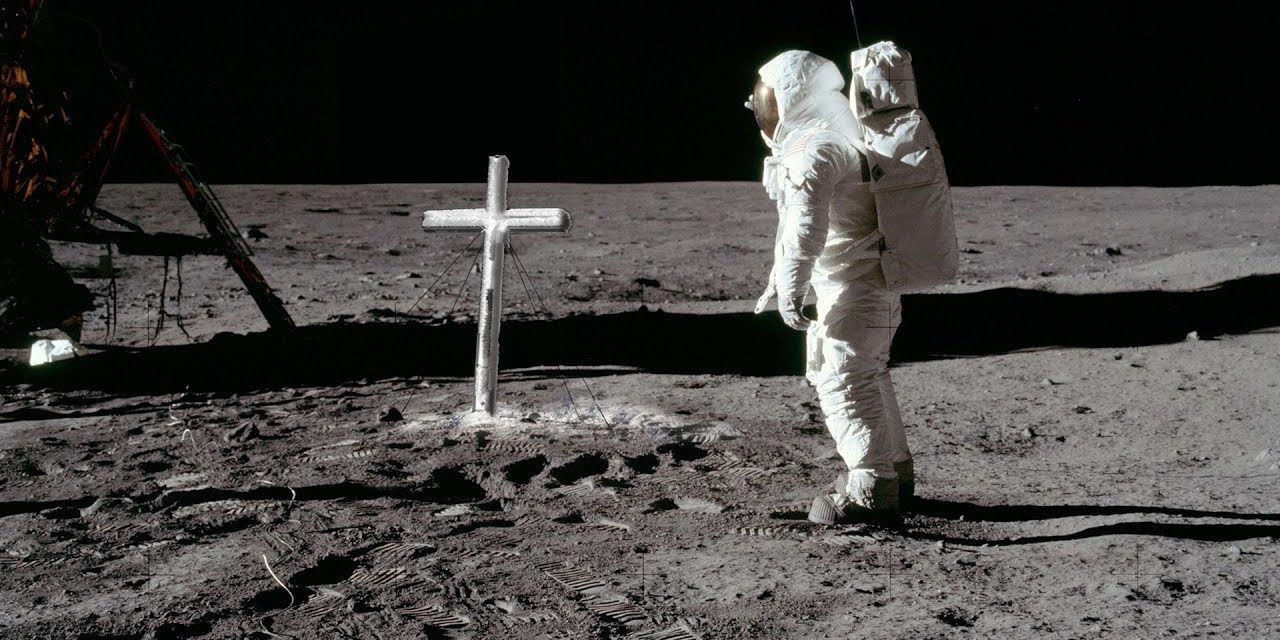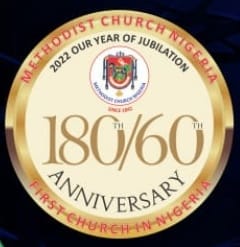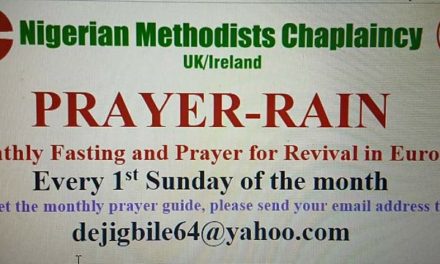Over 600 million people around the world watched the 50th anniversary of the Apollo 11, when astronauts Neil Armstrong and Edwin Eugene “Buzz” Aldrin Jr. for the first time walked on the Moon. Apollo 11 Holy Communion on July 20, 1969 provides us a missional reflection on how to overcome the famine of “One Thing,” that is, famine of hearing God’s Word.
We read in Amos about the connexion between sinful times and sorrowful times. Prophet Amos made reference to the ruin through the vision of “basket of summer-fruit.” Prophet Amos also point us to the connexion between sinful times and sorrowful times with reference to a famine of hearing God’s Word with ‘the punishment of a people that go a whoring after other gods.’ There is a general judgement of spiritual famine coming upon the whole land, ‘a famine of the Word of God, the failing of oracles and the scarcity of good preaching.’
“Behold, the days are coming,” says the Lord God,
“That I will send a famine on the land,
Not a famine of bread,
Nor a thirst for water,
But of hearing the words of the Lord.
They shall wander from sea to sea,
And from north to east;
They shall run to and fro, seeking the word of the Lord,
But shall rnot find it.
“In that day the fair virgins
And strong young men
Shall faint from thirst.
Those who sswear by tthe 5sin of Samaria,
Who say, ‘As your god lives, O Dan!’
And, ‘As the way of uBeersheba lives!’
They shall fall and never rise again” – Amos 8:11-14
The reflection on Amos’s vision is when ‘spiritual famine threatened, judgements threatened.’ Famine for hearing God’s Word is not that God is not speaking, the problem is that people no longer understand or hears. Famine of hearing God’s Word is about lack of message to the deepest area of life hence, the substitution of the creature for the creator and substitution of God’s nature. Idolatry always results in famine. Famine of hearing God’s Word produces ‘an ignorant restlessness’ that substitute something new and very religious for the Word of God. Famine of hearing God’s Word affects the whole society and most especially the youth – ‘fair virgins and young men (v. 13).
One of the answers to the famine of hearing God’s Word and a lesson from the Apollo 11 Holy Communion is to put away our idolatries and seek the Lord though His Word. According to an American Guideposts magazine published in 1970, Aldrin Jr. an elder at Webster Presbyterian Church, a congregation just outside of Houston, Texas told the lead pastor of his church, Dean Woodruff in 1969, that he had “been struggling to find the right symbol for the first lunar landing … We wanted to express our feeling that what man was doing in this mission transcended electronics and computers and rockets,” For Aldrin, the right symbol goes beyond human experiences and service. According to Woodruff, “One of the principal symbols is that God reveals himself in the common elements of everyday life.” For Aldrin, the common elements, common foods in the Bible days was the first celebration of the Lord’s Supper on the Moon. Aldrin Jr., while working at Cape Kennedy with the “sophisticated tools of the space effort” said, “It occurred to me that these tools were the typical elements of life today … I wondered if it might be possible to take communion on the moon, symbolizing the thought that God was revealing himself there too, as man reached out into the universe. For there are many of us in the NASA program who do trust that what we are doing is part of God’s eternal plan for man.” Another lesson from the Apollo 11 Holy Communion is that every human program is not just about earthly experiences, there is God’s divine eternal plan in them.
The NASA program resonates with what happened in ‘a particular village’ where Martha welcomed Jesus as a host with her sister Mary. Comparatively, the contrasts between Amos and Amaziah, Aldrin Jr. and Armstrong/other NASA staffs, Mary and Martha are very striking, Amos and Amaziah points us to the difference between ministry as a vocation and as an occupation; Aldrin Jr. and Armstrong/other NASA staffs points us to the difference between a professional astronaut and a Christian professional astronaut; and Martha, busies herself with “the details of serving” while Mary chooses to sit at the Lord’s feet and listen to what he was saying. The lesson is that, beyond “the details of serving,” we need to seek and listen to God’s eternal plan in everything we do.
The famine in the world today, is the famine of “One Thing,” and it is based on the right choice which is eternal and cannot be taken away (Lk 10: 41-42). To take a seat at the feet of the Lord is to seek and listen to God’s voice and direction. Martha in her desire to serve Jesus did not realise that she was actually neglecting her guest thereby neglecting God’s Word. The famine of “One Thing” is the increasing neglect of God’s Word, though busy doing things for Jesus but not spending time with him hence, service become self-serving. Aldrin Jr. did not neglect God’s Word even in the Moon. He read from Jn 15:5 before taking communion: “I am the vine, you are the branches. Whoever remains in me, and I in him, will bear much fruit, for you can do nothing without me.” He also requested a global moment of silence when he radioed back to NASA with this message: “Houston, this is Eagle. This is the LM Pilot speaking. I would like to request a few moments of silence. I would like to invite each person listening in, wherever and whomever he may be, to contemplate for a moment the events of the past few hours and to invite each person listening, wherever and whomever he may be, to contemplate for a moment the events of the past few hours and to give thanks in his own individual way.”
Aldrin’s church was not only praying for him, they gave him the chalice to celebrate the Communion in the Moon. Aldrin Jr. said “In the one-sixth gravity of the moon the wine curled slowly and gracefully up the side of the cup. It was interesting to think that the very first liquid ever poured on the moon, and the first food eaten there, were communion elements.” It is on record that, after taking the elements, Aldrin says he “sensed especially strongly my unity with our church back home, and with the church everywhere.”
The famine of “One Thing”: Lessons from Apollo 11 Holy Communion points us to the first requirement for every Christian. There is no famine of service or professionals. The famine of “One Thing” is a call to submit, seek, receive, and seat at the feet of Lord Jesus Christ for learning, devotion, closeness and direction. God is calling us to rise above the noise and pursuits of this world and seek those things which have eternal values.











Recent Comments